
What we ask Google most frequently can easily be discovered by seeing how the search engine autofills the beginning of a statement or question we’ve typed in. These top results are also, then, a snapshot of what other inquiring minds privately think of the subject that’s just been raised.
In 2013, social scientists from the Centre for the Study of Group Processes at the University of Kent in the UK explored a specific collective bias by typing “old people should” into the search bar.
“Old people should not drive,” read the top result. And, more disconcertingly, the second most popular was: “Old people should die.” These troubling findings indicate our society’s indictment of the elderly. But also, on a deeper level, they’re a reflection of our views on the ageing process itself. The cultural message that has clearly been swallowed hook, line and sinker: Be afraid, be very afraid, of getting old.
As other researchers have found, there’s a karmic irony at the centre of this kind of thinking. Holding negative opinions of ageing, they’ve concluded, makes people age more quickly.
Becca Levy, a professor of epidemiology and psychology at Yale’s School of Public Health, has found again and again that subjects who hold the most negative view of ageing—or who have assimilated pessimistic stereotypes of the elderly—pay for that bias on a physical level.
この記事は Reader's Digest India の October 2020 版に掲載されています。
7 日間の Magzter GOLD 無料トライアルを開始して、何千もの厳選されたプレミアム ストーリー、9,000 以上の雑誌や新聞にアクセスしてください。
すでに購読者です ? サインイン
この記事は Reader's Digest India の October 2020 版に掲載されています。
7 日間の Magzter GOLD 無料トライアルを開始して、何千もの厳選されたプレミアム ストーリー、9,000 以上の雑誌や新聞にアクセスしてください。
すでに購読者です? サインイン

ME & MY SHELF
Siddharth Kapila is a lawyer turned writer whose writing has focussed on issues surrounding Hinduism. His debut book, Tripping Down the Ganga: A Son's Exploration of Faith (Speaking Tiger) traces his seven-year-long journey along India's holiest river and his explorations into the nature of faith among believers and skeptics alike.

EMBEDDED FROM NPR
For all its flaws and shortcomings, some of which have come under the spotlight in recent years, NPR makes some of the best hardcore journalistic podcasts ever.
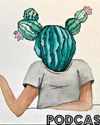
ANURAG MINUS VERMA PODCAST
Interview podcasts live and die not just on the strengths of the interviewer but also the range of participating guests.
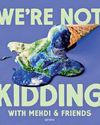
WE'RE NOT KIDDING WITH MEHDI & FRIENDS
Since his exit from MSNBC, star anchor and journalist Mehdi Hasan has gone on to found Zeteo, an all-new media startup focussing on both news and analysis.
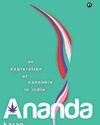
Ananda: An Exploration of Cannabis in India by Karan Madhok (Aleph)
Karan Madhok's Ananda is a lively, three-dimensional exploration of India's past and present relationship with cannabis.
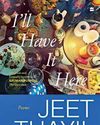
I'll Have it Here: Poems by Jeet Thayil, (Fourth Estate)
For over three decades now, Jeet Thayil has been one of India's pre-eminent Englishlanguage poets.

Orbital by Samantha Harvey (Penguin Random House India)
Samantha Harvey became the latest winner of the Booker Prize last month for Orbital, a short, sharp shock of a novel about a group of astronauts aboard the International Space Station for a long-term mission.

She Defied All the Odds
When doctors told the McCoombes that spina bifida would severely limit their daughter's life, they refused to listen. So did the little girl
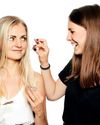
DO YOU DARE?
Two Danish businesswomen want us to start eating insects. It's good for the environment, but can consumers get over the yuck factor?

Searching for Santa Claus
Santa lives at the North Pole, right? Don't say that to the people of Rovaniemi in northern Finland